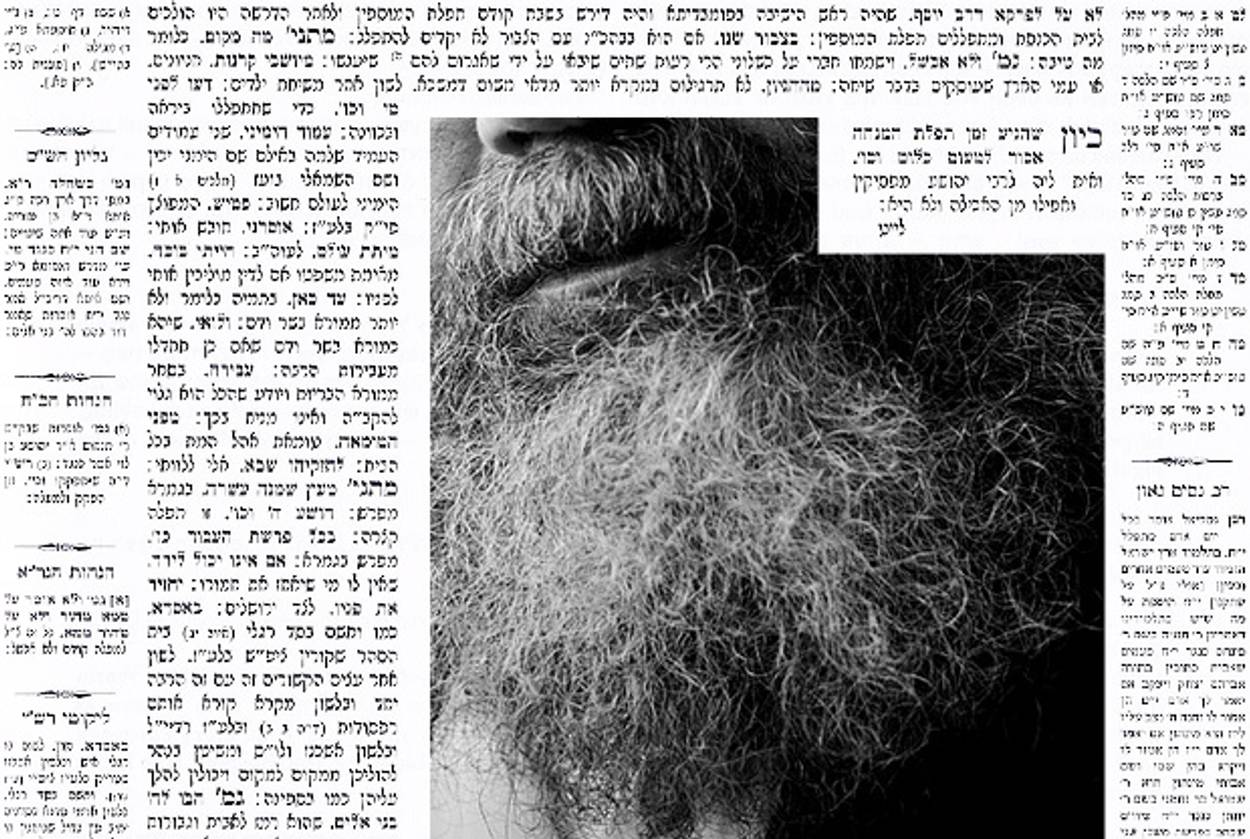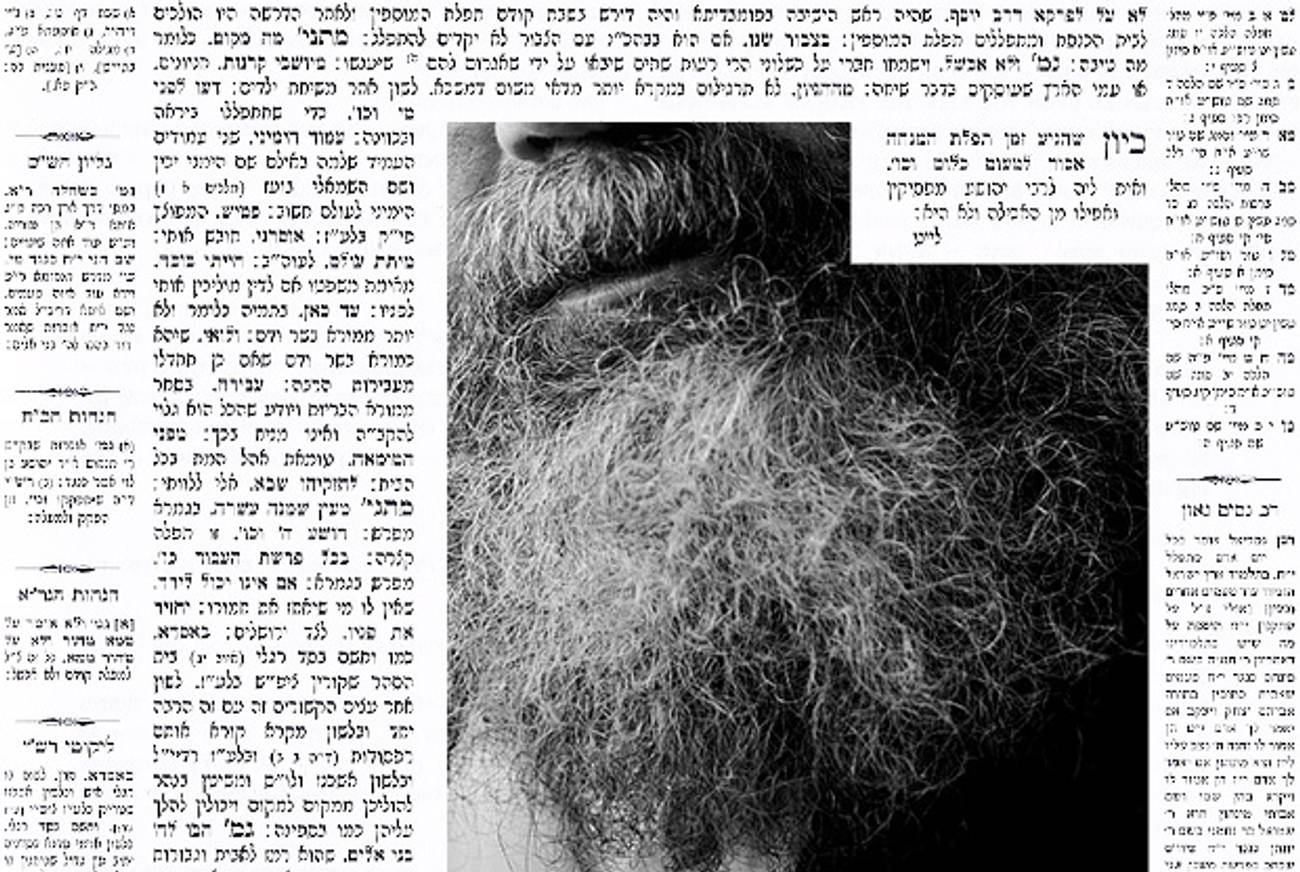Talmudic Rebbe-llion
A coup at the rabbinic academy deposes Gamliel and unleashes a torrent of questions




Literary critic Adam Kirsch is reading a page of Talmud a day, along with Jews around the world.
“Rabbi Elazar ben Azariah said: ‘I am like a seventy-year-old man, yet I was not successful in proving that the Exodus from Egypt should be mentioned at night, until Ben Zoma expounded it.’ ” Even if you have never opened a page of the Talmud, chances are you will recognize this passage of Mishna, which is recited every year as part of the Passover Haggadah. I’ve been reading it all my life, yet not until reading this week’s Daf Yomi did I fully register the oddity of the phrasing. Elazar doesn’t say that he is a 70-year-old man, only that he is like one. Why?
The explanation can be found in Berachot 28a, in the course of a story that provides a fascinating glimpse of the Tannaim, the rabbis of the Mishna, in action. As always, the story begins with a question of law: Is the evening prayer, Maariv, voluntary or required? Rabbinic opinion on the question is divided, with two of the giants of post-Temple Judaism giving contrary opinions. Rabban Gamliel (another name familiar from the Haggadah) held that Maariv was compulsory, while Rabbi Yehoshua said that it was elective. Such disagreements are very common in the Talmud, with much of the ingenuity of the Gemara devoted to reconciling contrary positions or deciding which one the halakhah should follow.
In this case, however, the Talmud goes on to give an exceptionally full account of how these opposite views led to, or were enlisted in, a personal power struggle between the rabbis in question. A student, we are told, once asked Rabbi Yehoshua his view of the Maariv prayer and was told that it was elective; then he went and asked Rabban Gamliel the same question and got the reverse answer. “But Yehoshua told me it is elective!” he protested, and Gamliel told him to raise the problem at the next meeting of the rabbinic academy. (Interestingly, the rabbis are referred to here as “the shield-bearers”—another example of the transformation of a military ethos into a scholarly one that I discussed two weeks ago.)
When the student raised his question at the academy, Rabban Gamliel, the chief rabbi or nasi, gave his ruling: Maariv is compulsory. He then asked if anyone felt differently, and Rabbi Yehoshua—keen to preserve consensus and submit to the authority of his master—declared that he was in agreement with Gamliel’s teaching. At this, Gamliel hostilely and haughtily called out Yehoshua on his inconsistency. He then humiliated him by forcing Yehoshua to remain standing as the proceedings continued.
This high-handed behavior, the Talmud relates, provoked an uprising among the scholars. “How long will Rabban Gamliel go on distressing Rabbi Yehoshua?” they asked, citing several other cases of disagreement. “Come, let us depose him!” This seems like a radical move, quite at odds with the usual ethos of the rabbis, and while Gamliel’s treatment of Yehoshua was certainly obnoxious, the reader is left wondering whether the resentment against Gamliel had a political as well as a personal dimension.
In any case, Gamliel was deposed, and the next order of business was to appoint a new head of the academy, which obviously presented a political problem. Yehoshua, the rabbis agreed, could not take Gamliel’s place, for he was personally involved in the incident that led to his deposition; if Yehoshua benefited from the quarrel, it might seem that he had provoked it out of personal ambition. Someone else had to be appointed, and the rabbis set down the criteria for a leader: He must be wise, wealthy, and of high birth.
Wisdom, of course, is a natural enough qualification for a sage. But why, the reader wonders, did he have to be rich and well-born? It was not, the Gemara emphasizes, because the rabbis paid any honor to such worldly traits. Rather, it was because the head of the academy was, in these first generations after the destruction of the Temple, a quasi-political official, responsible for mediating between the Jewish people and their Roman overlords. The title of nasi, prince, suggests the more-than-scholarly standing of the office. And to effectively “deal with the House of Caesar,” the Talmud explains, the nasi had to be rich.
What about the requirement of high birth? Here, too, one might expect that politics played a role: It would be natural for the nasi to need the prestige that came with descent from a priestly family. But the Talmud has another, more surprising explanation—a supernatural one. What if Rabban Gamliel, angry about losing his office, should call down the wrath of God on his replacement? The man in question would need “the merit of righteous ancestors” to avert God’s anger. For this reason, the rabbis rejected Akiva as a candidate for office: He was descended from proselytes, who had not stored up favors in God’s account book.
Finally, the rabbis came up with a candidate who met all three requirements: Elazar ben Azaryah, who was wise, rich, and a tenth-generation descendant of the biblical Ezra. But Elazar was unsure if he should accept the office, since he was—and now we circle back to the Haggadic question—only 18 years old. So, God sent him a sign: On that day, “a miracle occurred for him, and eighteen rows of hair in his beard turned white.” Now, though still a teenager he was truly “like a seventy-year-old man,” in appearance, wisdom, and authority. That is why, the Gemara notes, Elazar referred to himself in this unusual way.
The differences between Elazar and Gamliel were personal, but also, it would seem, institutional and ideological. Just as Gamliel was proud and high-handed with Yehoshua, and just as he gave a strict ruling concerning the Maariv prayer, so, we are told, he was grudging in admitting scholars to the study hall. “Any student whose inside is not as his outside may not enter the study hall” was his dictum: That is, it would seem, Gamliel personally judged whether a student was morally and spiritually fit to study Torah. Once Elazar took over, however, the doorkeeper of the study hall was removed—that is, admission was thrown open to everyone—and the ranks of scholars expanded enormously. By one account, 700 benches had to be added to accommodate the newcomers. Even Gamliel came to wonder if he had been too exclusive: “Perhaps, God forbid, I have withheld Torah from Israel!”
The picture of Gamliel gains an additional shading when we read about his attempt to reconcile with Yehoshua. Chastened by his demotion, he went to visit Yehoshua’s house to ask for his forgiveness. When he arrived, he noticed that “the walls of his house were black,” and he told Yehoshua, “From the walls of your house it is apparent that you are a smith.” There must have been something snobbish about the remark, for Yehoshua replied cuttingly: “Woe unto the generation whose leader you are, for you know not the suffering of Torah scholars, how they support themselves and how they are nourished!”
The critique of Gamliel in this whole anecdote is unmistakable. He comes across as rigid, mean, and proud, someone who rejoices in his intellectual and social power and uses it to punish his enemies. He must have been deeply unlikable for the whole academy to take the extraordinary step of deposing him. Yet once he humbled himself and reconciled with Yehoshua, the academy decided to give him his job back, while reducing Elazar ben Azaryah to the No. 2 spot. Clearly, he possessed the necessary qualities for a nasi—wisdom, wealth, and high birth—and these overcame whatever other objections could be raised against him.
I have noticed, in reading the Talmud so far and certainly in writing about it, my own tendency to focus on episodes such as this one—the observations and dicta and legends that seem to capture the worldview, and even the personalities, of the rabbis. These spiritual and ethical insights are invaluable as I try to work my way into the minds of the rabbis. But I recognize that my attraction to what might be called aggadah means I am giving less attention to halakhah, the close legal reasoning that is, after all, the central purpose of the Talmud. This may be inevitable, since my own life is not governed by the laws of the rabbis. In Berachot, for example, there has been much discussion of when exactly prayers have to be said, when they can be interrupted or shortened, and what to do if you make a mistake during prayer; since I don’t pray regularly, all this is necessarily less urgent to me than it is to someone who prays three times a day. Still, as I go on, I hope to gain a fuller sense of the wonderfully complex ways the rabbis think about law.
***
Like this article? Sign up for our Daily Digest to get Tablet Magazine’s new content in your inbox each morning.
Adam Kirsch is a poet and literary critic, whose books include The People and the Books: 18 Classics of Jewish Literature.
Adam Kirsch is a poet and literary critic, whose books include The People and the Books: 18 Classics of Jewish Literature.